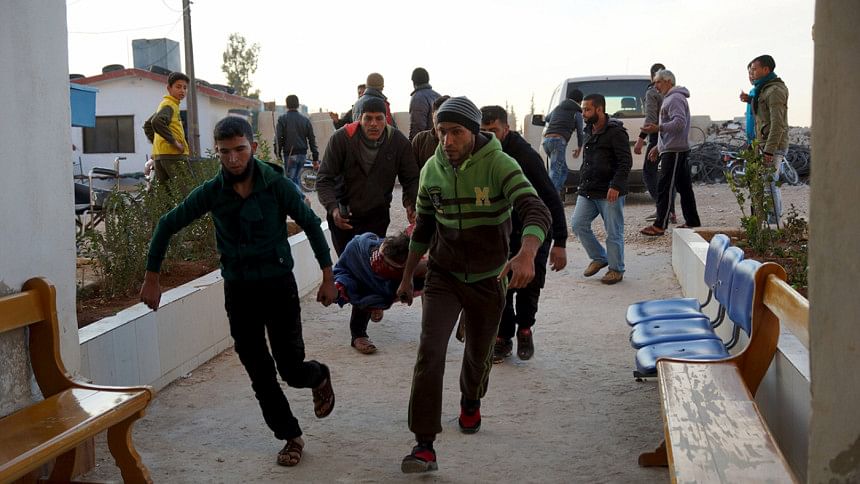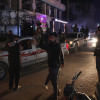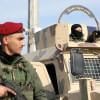Syria war: Yarmouk camp evacuation 'on hold'

The expected evacuation of thousands of rebels from in and around Yarmouk refugee camp in southern Damascus has been put on hold, reports say.
Safety issues and the killing of a top rebel have been blamed for the delay.
Militants and their families were due to be bussed to areas under the control of their respective groups, under a deal between rebels and the government.
About 18,000 civilians have been trapped in Yarmouk by the fighting and a government siege since 2012.
Islamic State (IS) militants took over parts of the camp earlier this year.
They were pushed back by Palestinian militias and Syrian rebels after weeks of fierce fighting, and Yarmouk has since been divided into areas controlled by IS, the rival al-Qaeda-linked al-Nusra Front, and pro- and anti-government Palestinian militants.
Government forces maintain checkpoints around the area preventing civilians from leaving.
SAFE PASSAGE
Under the deal, fighters will withdraw from Yarmouk and the neighbouring districts of Hajar al-Aswad and al-Qadam.
Eighteen buses which will transport rebels and their families were reported to have arrived at the camp on Friday.
However, Lebanese Hezbollah al-Manar TV said the evacuation was held up because the convoy was due to pass through territory controlled by rebel group Jaysh al-Islam, whose leader was killed in an air strike later that day.
The UK-based monitoring group Syrian Observatory for Human Rights (SOHR) said it was paused for "logistic reasons" in order to secure the road to IS-held Raqqa in the north-east.
The plan would see IS fighters and their families given safe passage there, and al-Nusra militants transferred to the northern province of Idlib.
Once Yarmouk is made safe, the UN will be able to get aid to the civilians who have been trapped.
Yarmouk was first built for Palestinians fleeing the 1948 Arab-Israeli war. Before the Syrian civil war began in 2011, it had more than 150,000 refugees living there.
Those trapped in the camp for the past two years, including 3,500 children, have no access to regular food supplies, clean water or healthcare.

 For all latest news, follow The Daily Star's Google News channel.
For all latest news, follow The Daily Star's Google News channel. 








Comments